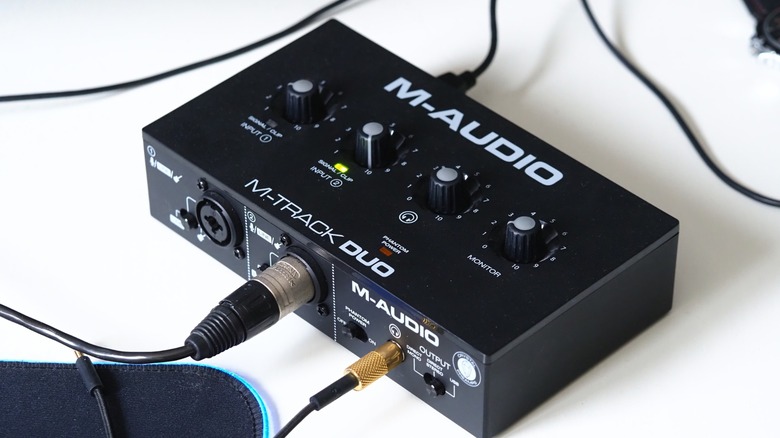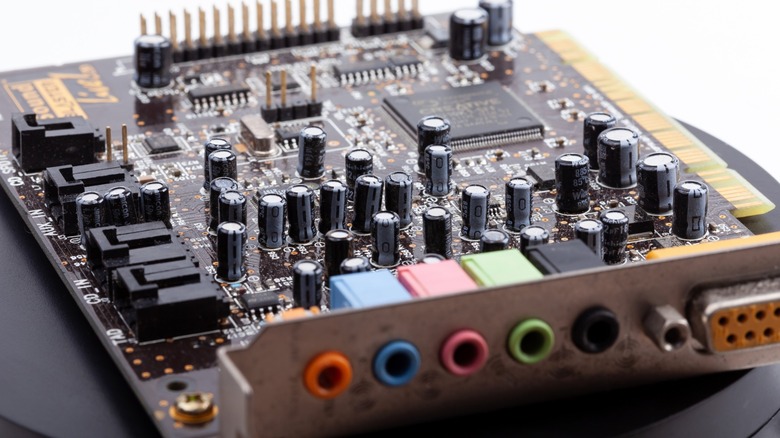Does Your PC Need A Dedicated Sound Card? Here's What You Need To Know
If these were the early 2000s. We would have said that having a sound card is a flex. With good reason, too. You'd slap one into your PC, crank up a media player, and pretend you were mastering audio. But today, most motherboards come with a pretty solid built-in audio system. So, do you really need a sound card anymore? The short answer is no, you probably don't. But the longer answer is more interesting.
These advancements in built-in audio chips mean that the average PC user can expect good audio quality. It won't need any add-ons. Built-in audio also means sound cards are no longer among the must-have components for your gaming PC. The sound quality is usually good enough on the major PC brands. However, some people require more than just good enough, and this is why sound cards still exist.
Perhaps your motherboard's audio port has malfunctioned. Maybe you have high-impedance headphones that your onboard audio can't drive properly. You could also just be into audio production and want that extra clarity, detail, or control. These and more make up the multiple reasons for wanting better audio. But, does your PC need a dedicated sound card? Here's what you need to know.
You don't need one, but here's when you might
A sound card simply converts digital data into analog sound — just like your built-in audio does. The difference is that a sound card usually does it better. Most internal sound cards come with higher-quality DACs. The DACs are great amplifiers. They enhance your audio quality and allow you to utilize other advanced features. That said, don't expect it to work miracles. If you're using budget headphones or small laptop speakers, the upgrade will not feel like one.
Another reason you might want a sound card is isolation from motherboard interference. Onboard audio can pick up electrical noise from hardware components. Sound cards, especially external DACs, avoid this. This is because they have their own dedicated circuit or are used externally, outside the case. Even then, you might experience certain issues, especially with mid and low-tier sound cards. You might also only notice improvements if your ears are trained or your setup is high-end.
Additionally, most modern media formats offer both stereo and standard surround sound anyway. Every major gaming laptop brand should support this. So, a sound card won't drastically change your life. That is, unless you're using a specific audio workflow. For instance, lossless audio production and high-res playback. In fact, if you really want better audio, using an external DAC and amp might be a smarter move. These are easier to move around, and you won't even have to open your PC case.

